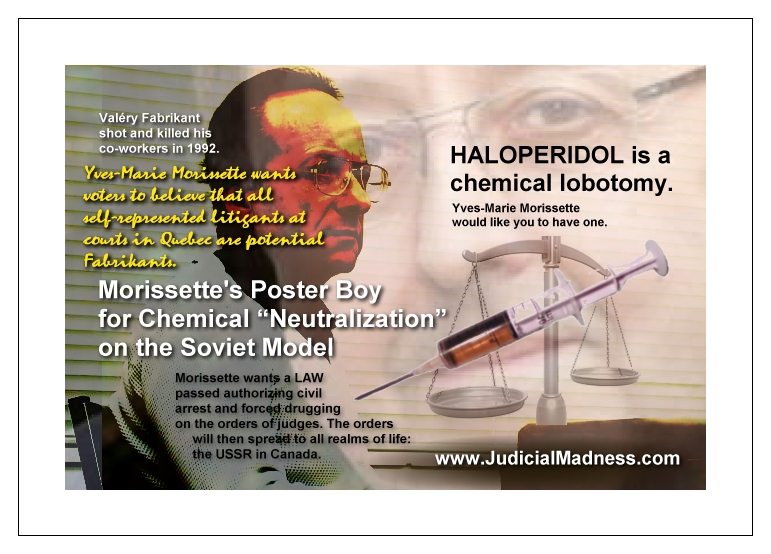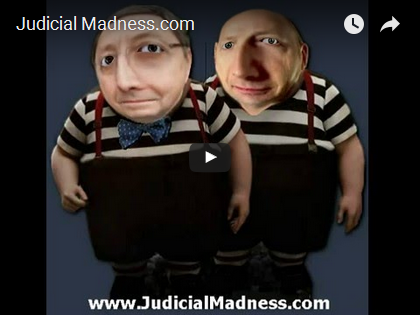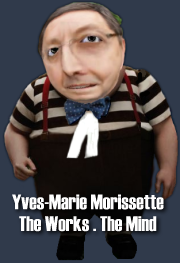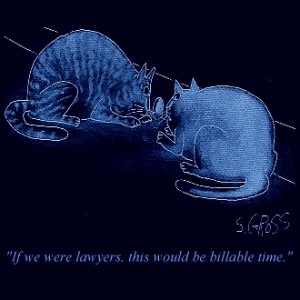In defence of complainants, Dr. R. Pal
Source: In defence of complainants
Dr. R. Pal
The British Journal of Psychiatry Jul 2004, 185 (2) 175-176; DOI: 10.1192/bjp.185.2.175-a
Foreword: This is a psychiatrist’s reply to the paper, Unusually persistent complainants, by Grant Lester, Beth Wilson, Lynn Griffin, Paul E. Mullen in The British Journal of Psychiatry Mar 2004, 184 (4) 352-356; DOI: 10.1192/bjp.184.4.352. In that article, the word “complainants” refers to self-represented litigants.
eLetter
It is interesting that the complaints involved within the study by Lester et al (2004) were not subject to independent legal scrutiny. The reader therefore has no idea of their merits.
Anyone who has experienced the difficulties of authorities and courts will realise that bureaucracy and confusion pervade each institution. Anyone who has attended one of our supreme courts will know that the service is slow, correspondence often goes missing, checks are required to ensure that the correct folders and paperwork are presented, and often uncomfortable questions are ignored. These are characteristics of the average day of a normal and rational human being attempting to protect his or her civil liberties. These are practical problems faced by the average person.
With the advent of the Human Rights Act 1998 civil liberties have come to the forefront. It is an Act that cannot be ignored. Indeed, with increasing litigation, authorities have by nature become defensive. Part of the method of making life impossible for complainants is to increase the bureaucracy.
The number of letters, phone calls, etc. reported by Lester et al (2004) may be part of ‘normal’ human behaviour and reaction to bureaucracy. In a democratic country, we all have a right to protect our civil liberties. Often litigants lack knowledge, have no idea of procedures, and are misled by authorities who have a vested interest in protecting themselves. To label this behaviour as an ‘abnormality’ or something that requires psychiatric intervention is ludicrous. Indeed, I note the Royal College of Psychiatrists runs a very successful antistigma campaign to stamp out discrimination against those with mental illness. The diagnosis of querulous paranoia runs the risk of misuse by those who wish to use psychiatry as a manner of silencing criticism. The behaviour exhibited in the study is indeed a normal reaction to the circumstances faced. ‘Normal’ of course depends on many variables such as response time of the complaint officers, failure to address questions, replies to phone calls, etc. These factors have not been addressed.
It stands to reason that psychiatrists are not judges.* Indeed, the merits of the complaint will be subjectively assessed by each psychiatrist based on his or her prejudices. This is hardly independent.
Querulous paranoia is a diagnosis best left within the darkened past of psychiatry – perhaps pre-war Russia where Stalin often used ‘madness’ to silence his critics. Genetically, we are all ‘different’ by nature and react in various ways to injustices. It is essential to maintain the civil right to seek a remedy without interference from psychiatry. Interference from psychiatry will only increase the stigma associated with it for so many years.
It is often the case that different personas, atypical to the perceived norm, are subjected to psychiatric analysis. There is a minority of serial complainants but the difference is to ascertain whether their complaints have merits or not. A psychiatrist cannot assess this fairly. Without an independent legal assessment, any person who attempts to fight or campaign for their civil liberties runs the risk of being labelled with a psychiatric illness. Their credibility will often be substantially affected. This, indeed, may be a rather convenient way of silencing uncomfortable critics of negligent authorities. This was not what psychiatry was meant for and neither should it risk going down that route, given the good work done by the College’s anti-stigma campaign on raising awareness of discrimination in mental health.
[Emphases added. Admin JMad]
© 2004 Royal College of Psychiatrists
References
Lester, G., Wilson, B., Griffin, L., et al (2004) Unusually persistent complainants. British Journal of Psychiatry, 184, 352 -356.
Abstract/FREE Full Text
Author’s reply
Judging from Dr Pal’s letter we failed totally to communicate adequately the purpose, the methodology or the conclusions of our paper on unusually persistent complainants. Dr Pal’s letter comes, therefore, as a welcome opportunity to clarify our views.
We scrupulously avoided the term querulous paranoia. The unusually persistent complainants and their controls were selected by professionals working within the ombudsmen’s offices, many of whom are legally trained. We are studying not courts and bureaucracies, but organisations whose mission is to assist complainants find a satisfactory resolution to their grievances. The organisational responses to the complaint, far from being ignored, were examined as the most likely precipitant of unusual persistence.
Dr Pal’s passionate defence of civil liberties and attack on ‘misleading’ bureaucracies set on ‘silencing criticism’ seems misplaced as a criticism of a paper aimed at understanding and assisting those currently damaged by engagement within systems of complaints resolutions. Dr Pal clearly has a generous view of ‘normal reactions’, which incorporates behaviours involving a total fixation on a grievance to the point where individuals consume all their time, resources and energies in a futile pursuit that lays waste their own, and their families’, lives. Dr Pal also presumably encompasses within the notion of normal overt and covert threats against complaints officers and their families.
Having our approach compared to Stalin, even a Stalin who Dr Pal seems to believe improved his behaviour post-war, might be considered intemperate, directed as it is at the authors of a paper which attempted to broaden the sympathies and concerns of mental health professionals for a distressed and disturbed group within our communities.
* Admin JMad: Dr. Pal said: “It stands to reason that psychiatrists are not judges.” Perhaps he would agree with me that judges are not psychiatrists!




